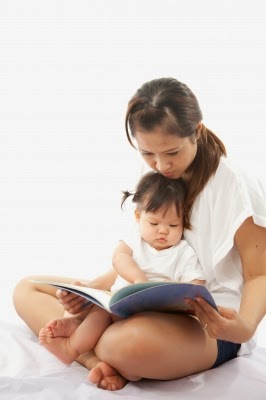
How did we get here? Suddenly, it seems, we are in a new stage of family life and parenthood. It's been over 9 years now since I became a mother, and my youngest child is ready to begin school (pre-K) in the fall. The four-year-old is (finally!) somewhat interested in learning to recognize letters and numbers, and I know it won't be too long before he's reading books alongside his older brother and sister. Our household is free of diapers, pull-ups, wipes, cribs, baby monitors, highchairs and most recently, outlet covers. I still do a fair amount of laundry and dishes every day, and it's true that my workload of coordinating schedules for each family member tends to increase as the kids grow (although we try to mindfully limit the number of sports and other extracurricular "enrichment" activities at this stage to allow for unstructured play and family togetherness after school and on weekends).
If that sounds like your everyday life right now--if you're struggling in the very midpoint of the tunnel and feeling like the dreariness, the burdening demands of the routine and the mundane will go on forever; if you're weighed down by comparisons and a constant nagging inner voice telling you you're falling short--take heart. You are not alone. And it gets easier.
I think the most discouraging thing to hear when you're in that place of exhaustion, sleep deprivation, food battles/mealtime chaos, figuring out family rules and discipline methods and how to share the parenting responsibilities with your spouse, is that it only gets tougher as they get older. I've heard this sentiment expressed many times by well-meaning older people or parents of teenagers. I don't think there is malicious intent underlying this statement, but it's simply not true. And it seems to betray a lack of empathy and an unwillingness/inability to remember what it was truly like parenting in the trenches.
Here is what I have come to believe about parenting: it's a front-loaded job. An incredible amount of work and effort is required at the front end in order to create conditions for flourishing that we hope will yield positive outcomes and rewarding relationships later on. It means working hard to set age-appropriate limits for your kids' behavior, responses, and habits (and yes, screen exposure) at each stage of their development. It means being willing to answer questions, to discuss or research a wide range of topics you'd either never considered or never even heard of. It means teaching and modeling healthy conflict resolution, admitting your mistakes and asking forgiveness when you're wrong. It means reading books and watching films together and then dissecting the ideas, messages and themes, modeling analytical and critical thinking for your kids. It means spending time together as a family and working toward creating an atmosphere of love and safety, so that your kids trust you enough to come to you with hard questions and emotional challenges that will arise later. All these things, together with the physical demands of having newborns and toddlers and preschoolers--feeding and potty-training and bedtime struggles-- are the reasons why we are so exhausted! But I believe and hope and trust and pray that these efforts (rooted in faith) will pay dividends in the future as our kids continue to grow and mature. They are making visible progress (however slow) toward healthy, independent, emotionally secure, confident adulthood. Already my oldest child is more helpful and independent than I would have imagined; she takes initiative in new ways every week. My middle son has made incredible strides in social and emotional adjustment (being considerate of peers, following instructions, respecting teachers) and self-control in the past couple years since starting school. Parenting has gotten somewhat easier for us already, and I believe that will continue over the years. We fully expect that as our kids grow older and we give them more freedom and more responsibility, they will make mistakes; but they will know we are always on their side, here to listen and offer counsel when needed (but not to swoop in and rescue them from consequences).
I love this quote by author Ken Robinson about education: "We have to recognize that human flourishing is not a mechanical process; it's an organic process. And you cannot predict the outcome of human development. All you can do, like a farmer, is create the conditions under which they will begin to flourish."

